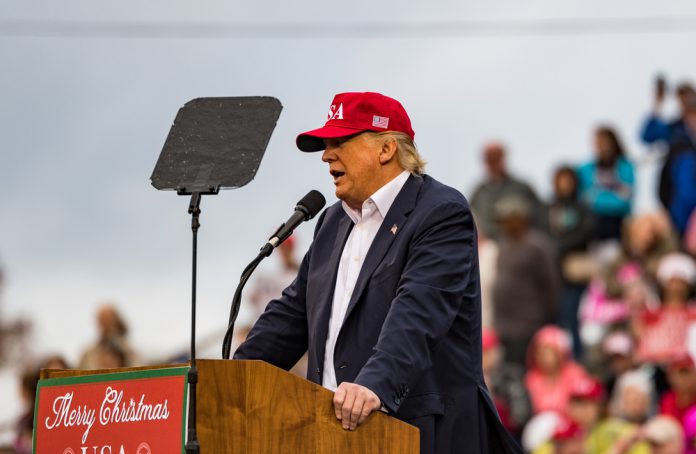The US Supreme Court has allowed the temporary ban on people travelling from six Muslim-majority countries and all refugees to go into effect, in a victory for Donald Trump.
“The interest in national security is an urgent objective of the highest order,” they said in their ruling.
The was reinstated to the Supreme Court on June 2.
The countries included in the ban are Somalia, Sudan, Yemen, Iran, Syria and Libya.
“In practical terms, this means that [the executive order] may not be enforced against foreign nationals who have a credible claim of a bona fide relationship with a person or entity in the United States,” The court said on Monday.
“All other foreign nationals are subject to the provisions of [the executive order].”
“Today’s compromise will burden executive officials with the task of deciding — on peril of contempt — whether individuals from the six affected nations who wish to enter the United States have a sufficient connection to a person or entity in this country.” said Justice Clarence Thomas.
“The compromise also will invite a flood of litigation until this case is finally resolved on the merits, as parties and courts struggle to determine what exactly constitutes a ‘bona fide relationship,’ who precisely has a ‘credible claim’ to that relationship, and whether the claimed relationship was formed ‘simply to avoid’ the executive order.”
The ruling clarified that will not apply to everyone. It does not include a student at an American university, an employee of a US company, or a lecturer invited to address an American audience.
“For example, a non-profit group devoted to immigration issues may not contact foreign nationals from the designated countries, add them to client lists, and then secure their entry by claiming injury from their exclusion.”
The court also said there will be a 120-day ban on refugees who hope to enter the US. This will allow the government to refuse entry to refugee claimants who do not have any “bona fide relationship” with an American individual.

